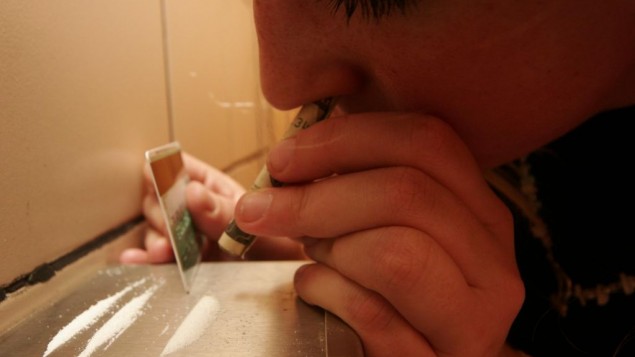Major drug routes passing through the country en route from Africa to Europe cater to white-collar thrill-seekers as drug money continues to finance terrorism
Yifa Yaakov
The Times of Israel
October 20, 2013
Months after the UN’s World Drug Report for 2013 indicated that Israel was located at the crossroads between several drug trafficking routes, Israel has reportedly become a “major hub” in the international cocaine trade — with abuse of the substance increasingly on the rise, especially among white-collar Israelis.
In a Ha’aretz report published Saturday, Israel Anti-Drug Authority rehabilitation unit head Dr. Haim Mal is quoted as saying Israelis have begun to eschew soothing and relaxing drugs and opt for ones that increase alertness, like cocaine.
“Cocaine is a social drug that can be found in nightclubs in Israel’s major cities and among a wide range of users, most of them in the liberal professions,” Mal reportedly said, calling the drug “a social phenomenon that has emerged in Israel as in other countries around the world.”
He warned of the drug’s harmful effects — which, unlike the notorious effects of heroin, damage the soul more than the body, but can still lead to hospitalization.
With more and more Israelis in search of thrills rather than peace of mind, the drug trafficking routes that intersect in Israel and pass through it in transit are finding a growing market in the country. According to a 2009 survey by the Anti-Drug Authority, the amount of cocaine used in Israel doubled between 2005 and 2009, with nearly one percent of Israelis aged 18-40 admitting to having used the drug.
The World Drug Report noted that in 2011, Israel registered an increase in the amount of cocaine seized in the country, possibly en route from Africa to the Balkans and eastern Europe through West Africa and the Levant, particularly Israel, Lebanon and Syria. “A link between this emerging route and the Near and Middle East cannot be excluded,” concluded the report.
In 2012, the US State Department’s International Narcotics Control Strategy Report (INCSR) listed Israel as having “a significant domestic demand for illegal drugs,” despite not being a major producer or trafficker of narcotics.
The report also noted an increase in money laundering in Israel and a connection between drug money and “terror financing and human trafficking.” The country’s growing youth and illegal immigrant populations were both singled out as future targets — the youth for drug use, the immigrants for trafficking. Dual citizens were also singled out for possible involvement in drug smuggling and trafficking, due to the advantage conferred by holding two passports.
The report stated that 225 kilograms of cocaine were seized in Israel between January and September 2011, compared to 639 kilograms of marijuana and 671 kilograms of hashish, seized mostly from the Egyptian border — as well as a mere 15 kilograms of heroin.

